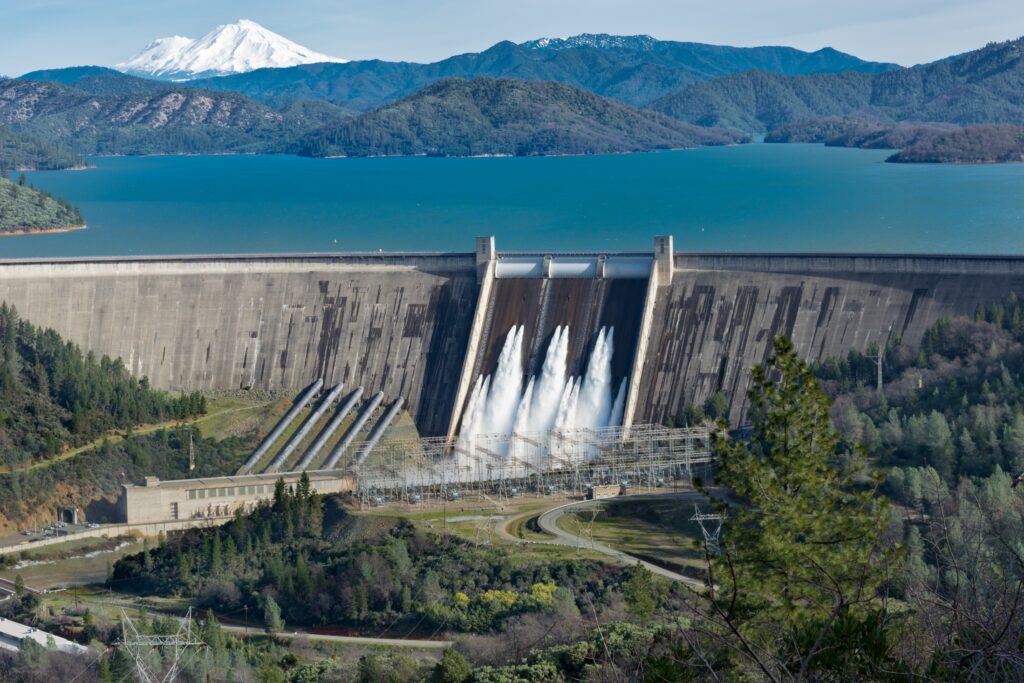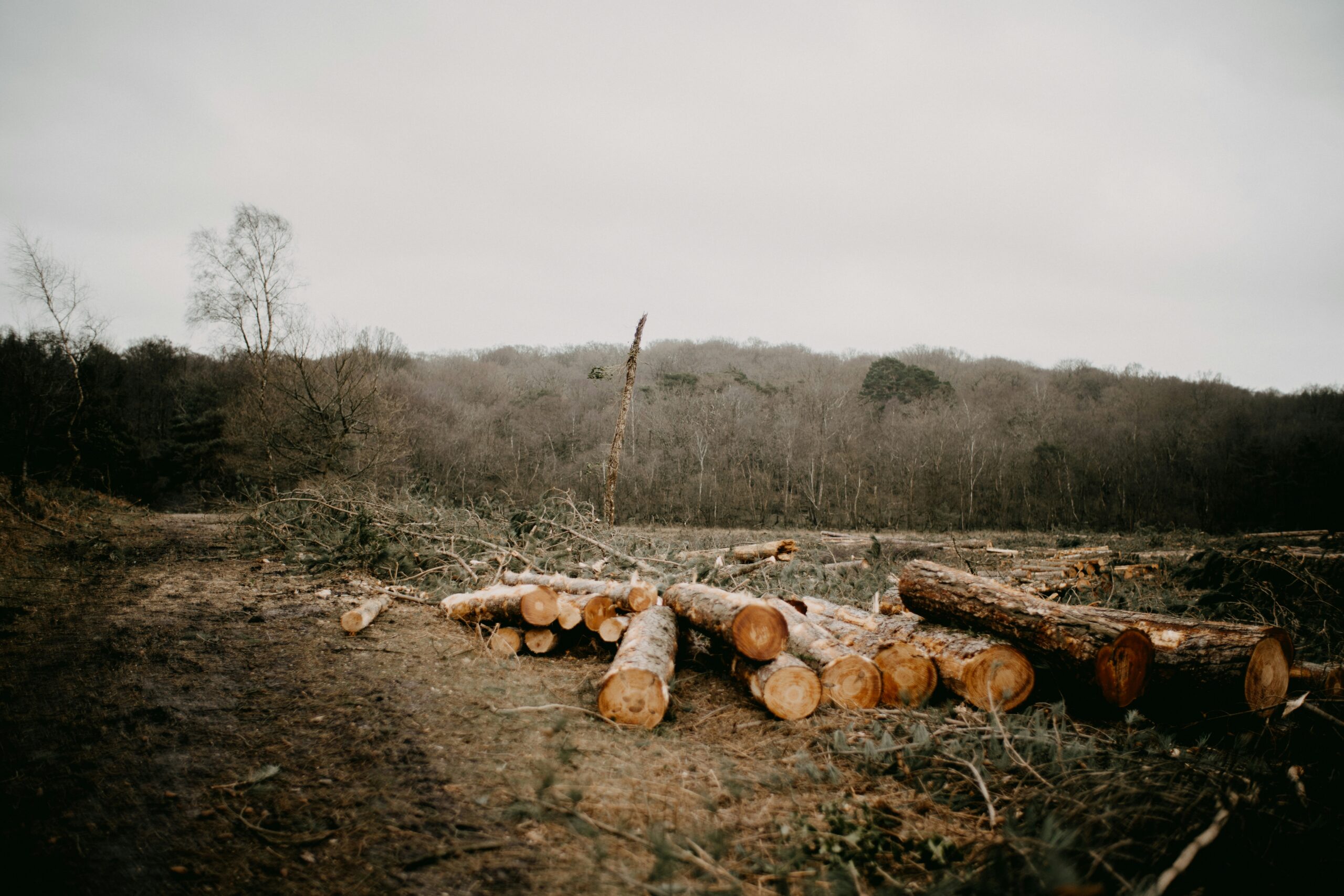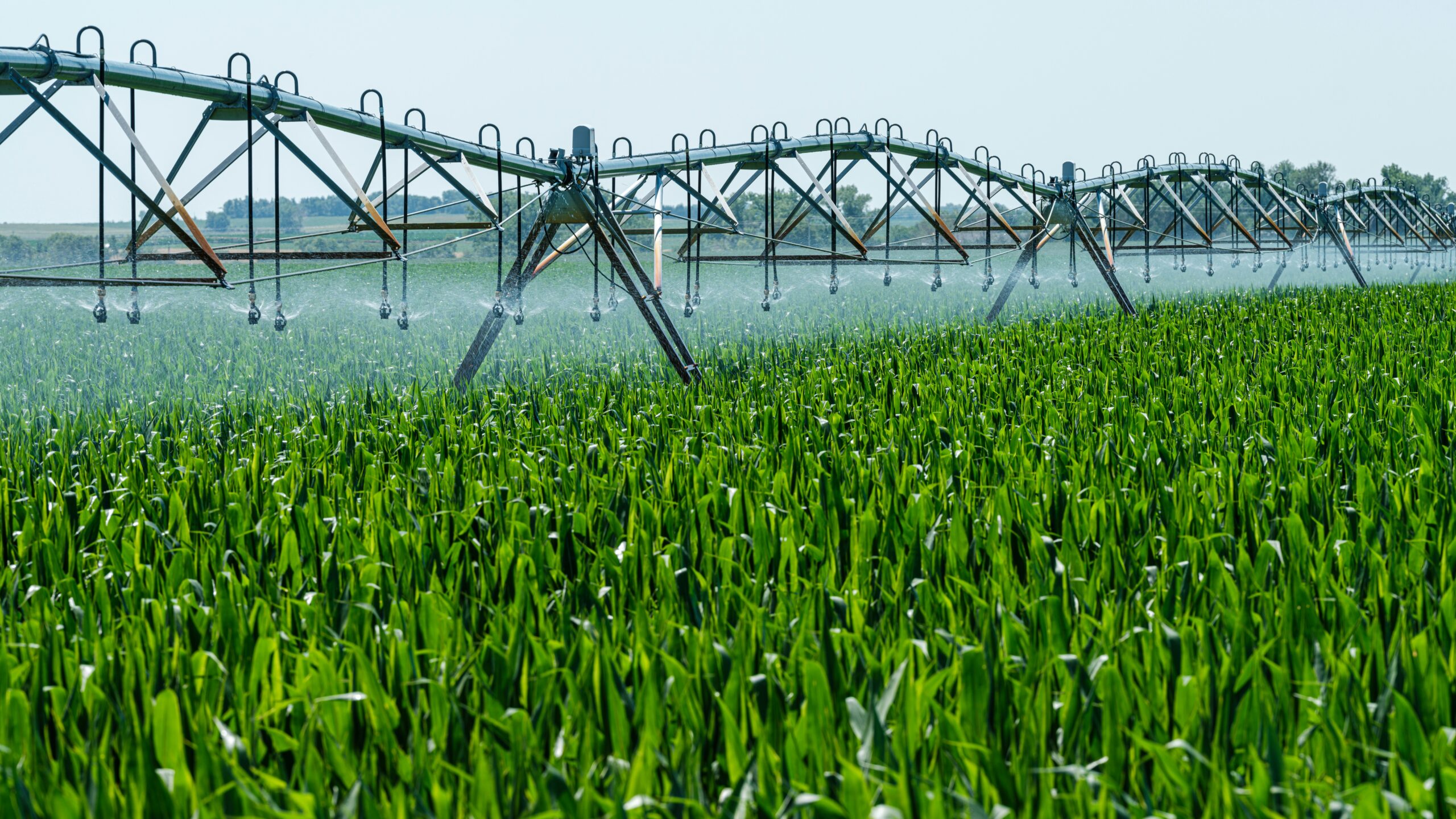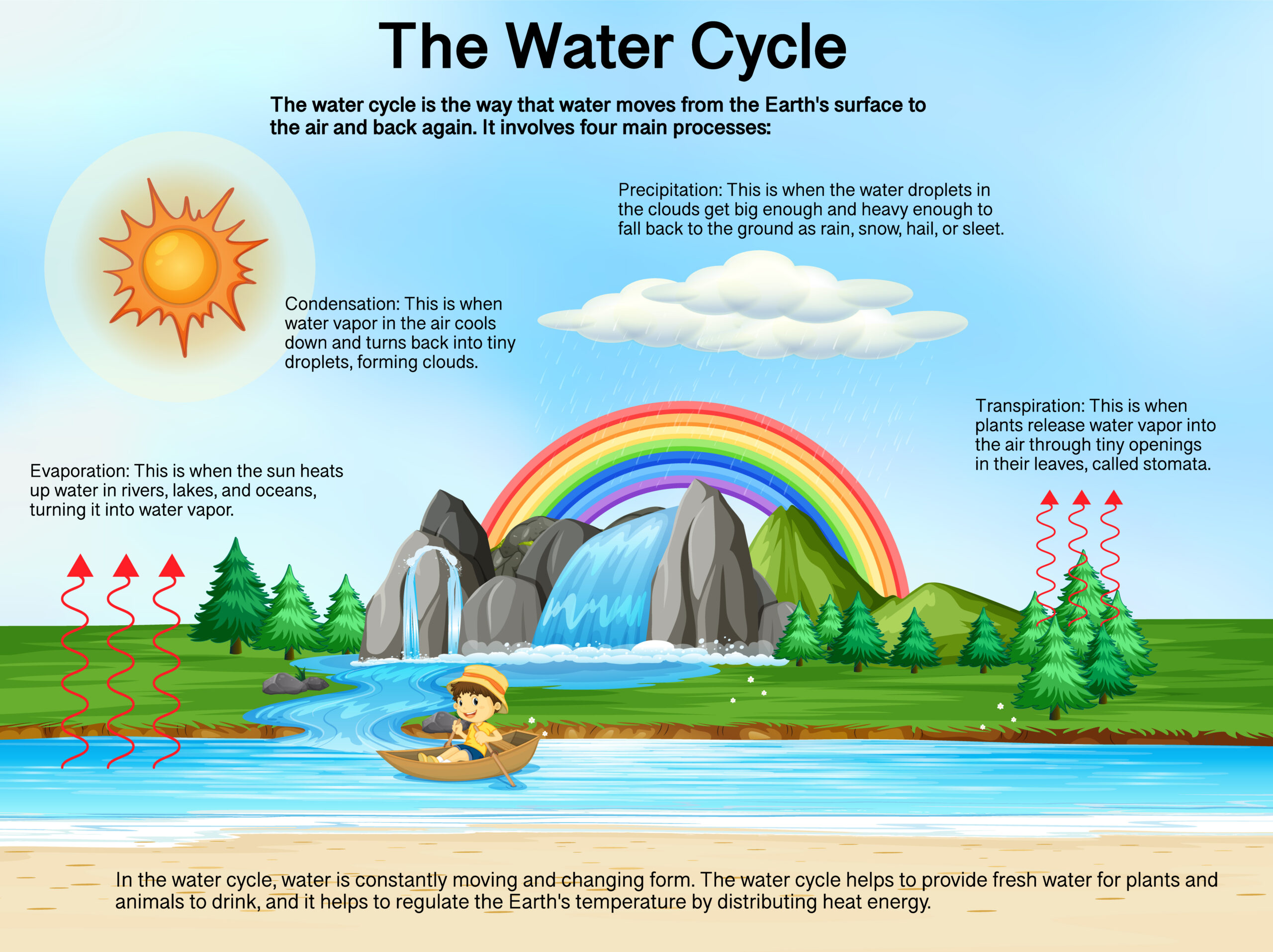How Are Humans Changing The Water Cycle?
Have you ever noticed that the weather is really unpredictable sometimes? Either there’s not enough rain or there’s a big flood. Do you know why? This is because humans are changing the water cycle – how water moves around our world. It’s important for everyone, and when we change it, it can cause big problems.
Lets discuss how our actions—like cutting down trees or using a lot of water—can change this cycle. We’ll see why it matters and what we can do to help.
1. What is the Water Cycle?
It is like nature’s way of recycling water. Here’s how it works
- Evaporation: Water from rivers, lakes, and oceans turns into vapor (like steam) and goes up into the air.
- Condensation: This vapor cools down and forms clouds.
- Precipitation: Eventually, the clouds get heavy and drop water back to Earth as rain or snow.
- Collection: The water then flows back into rivers, lakes, or the ground, and the cycle starts all over again!
This cycle is super important because it helps provide us with fresh water, supports plants and animals, and keeps our climate stable.
2. How Do Humans Affect it?
Our daily choices can change this cycle in several ways
2.1 Hydroelectricity

We use water to make electricity in dams. While this is good for energy, building big dams can stop water from flowing naturally. This can block fish from swimming upstream and lower the water available for people and farms downstream.
2.2 Deforestation

Cutting down trees can hurt this natural flow of water. Trees help put water vapor into the air, which makes rain. When we remove them, it can cause less rain and lead to dry areas (droughts). It can also wash away dirt, which can clog rivers.
2.3 Irrigation

Farmers need a lot of water to grow their crops. If they use too much, it can lower the groundwater levels, making it hard for people to get clean water. It also causes problems with water quality, which can hurt fish.
2.4 Climate Change

As the earth gets hotter, this cycle speeds up. This can lead to more floods in some places and droughts in others. It can also cause changes in weather that can make it hard for farmers to grow food.
3. Effects of a Changed Water Cycle
When this cycle is changed, it can cause problems for everyone
- Glaciers and Ice Sheets: Glaciers are big ice blocks that are melting because of climate change. When they melt, sea levels go up, and people who rely on glacier-fed rivers for drinking water are affected.
- Oceans: Warmer oceans can harm fish and other sea creatures. This can be tough for people who depend on fishing for their jobs.
- Rainfall: When this cycle is disturbed, it means some areas get too much rain, causing floods, while others might not get enough, leading to droughts. This can hurt farmers and lead to food shortages.
- Runoff: When it rains too much, water can wash away dirt and trash into rivers, making the water dirty and unsafe to drink or swim in.
- Groundwater: We need groundwater for drinking and farming. If we use too much, wells can run dry, leaving people without water.
4. How Can We Help Save Water and Protect the Natural Water Flow?
Here are some easy things you can do
• Save Water: Turn off the tap while brushing your teeth, and take shorter showers.
• Plant Trees: Trees help keep this natural cycle going, so help plant them in your community.
• Use Less Water for Farming: Support local farms that use smart watering methods.
• Tell Others: Share what you learn about it with your friends and family.
Conclusion
It’s important to understand how our actions change the water cycle. By making better choices, we can help protect it. Together, we can make sure there’s enough clean water for everyone and keep our planet healthy. Let’s work together for a better future!
Also read an article on: Managing Type 2 Diabetes with Food and Fitness
FAQs
Q. How do humans impact the natural flow of water?
A. We can change it by building dams, cutting down trees, using too much water, and causing climate change.
Q. Why is this cycle important?
A. It helps provide fresh water for drinking, growing food, and supporting nature.
Q. What can I do to help?
A. Save water at home, plant trees, support local farmers, and share what you learn!
Q. How does climate change affect the water cycle?
A. It can make the weather more extreme, leading to more floods or droughts.

